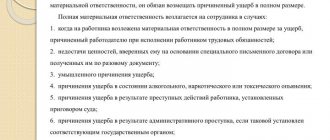Confiscation of property means its forced and gratuitous seizure from the owner who has committed a certain offense. This procedure is carried out in favor of the state or the victim and is regulated by Civil, Administrative and Criminal Law, in particular, Art. 235, 243 Civil Code and 104.1 Criminal Code. If the application of a measure implies the termination of property rights, it requires the mandatory presence of an appropriate court decision (Part 3 of Article 35 of the Constitution).
Features of modern confiscation
Since 1997, confiscation of property has been a type of punishment provided for by the Criminal Code for especially serious crimes, as well as those committed for mercenary reasons. An example of this is the notorious dispossession of wealthy peasants, who were deprived of all land, tools of production and forcibly resettled to remote areas of the region.
However, in 2003, confiscation was excluded from the punishment system and currently operates as an additional criminal law measure. Changes regarding the legal nature and application of confiscation of property are as follows:
- Not any property is confiscated, as was the case before, but its specific types, listed in Art. 104.1 CC.
- Property can be confiscated not only for the benefit of the state, but also for the benefit of the victim.
- This measure is applied when committing illegal acts mentioned in Art. 104.1 of the Criminal Code, and is not a punishment provided for by a specific article of the Criminal Code.
Inventory of confiscated property by bailiffs
Confiscation of property and seizure of property must necessarily be carried out with the presence of witnesses, a bailiff and the debtor. The procedure is accompanied by the filing of a claim for arrest, which includes the following information:
- Full name of all citizens participating in the process of seizure of property;
- the name of each item that is included in the act, their distinctive features;
- terms of restrictions on the rights to use the described property;
- information on property valuation;
- the citizen to whom the property is being sent for safekeeping is indicated, including its registration address;
- a mark is placed indicating the alienation of the property and that the debtor is notified of his duties and responsibilities for concealing the property, signed by him.
Additionally, the signatures of the bailiff and citizens who were invited as witnesses are affixed.
What property can be seized
According to Art. 104.1 of the Criminal Code, confiscation applies to property:
- Obtained as a result of unlawful actions.
- Illegally transported across the border of the Russian Federation and states included in the EurAsEC Customs Union.
- Converted from illegally obtained funds, including money and valuables. For example, a house purchased with funds received from illegal drug trafficking (read more about the article for distribution and storage here)
- Intended for terrorist activities - funds, weapons, posters and equipment.
- With the help of which the crime was committed - the weapon or means.
The Criminal Code of the Russian Federation assumes confiscation of property in relation to material objects.
For example, if the rights to the results of intellectual work are violated, its material products will be confiscated.
If stolen property or the profit brought by it was added to legally acquired property, the part that corresponds to the appropriated property is subject to confiscation (Part 2 of Article 104.1 of the Criminal Code).
The criminal may also transfer illegally obtained property to a third party or organization. In this case, the property will be confiscated if the new owner knew or should have known about the method of obtaining it (Part 3 of Article 104.1 of the Criminal Code). If it is impossible to confiscate the property appropriated by the criminal, confiscation of its monetary equivalent is allowed.
Can the property of the debtor's spouse be seized?
According to Art. 79 Federal Law No. 229, only the property of the debtor himself is subject to arrest. But at the same time, the Civil Code and the Investigative Committee of the Russian Federation establish that property acquired during marriage is considered jointly acquired by both spouses.
Thus, legally, bailiffs have every right, if the debtor’s savings are insufficient, to “come” for the property of the spouse. This outcome can only be avoided if you can prove in court that you are unaware of the loan your spouse is receiving.
But because Banks always ask for your spouse’s notarized consent to receive a loan; it will be extremely difficult to prove your ignorance in court. Unless the notarial consent turns out to be fake based on the results of the examination, but this happens extremely rarely.
Property not subject to confiscation
As Art. 446 Code of Civil Procedure, a person cannot be deprived of:
- the only residential premises, if he has no other places to live, and the land under it;
- furniture, stoves, dishes and other essential household items;
- clothes, toys and other things belonging to children;
- fuel used for cooking and heating;
- seeds intended for sowing;
- livestock and poultry, serving as the only source of food. In this case, complete confiscation of property means the death of the defendant and his family;
- equipment and tools necessary for earning money, unless the court has imposed a ban on the implementation of this work activity;
- funds in the amount of the subsistence level;
- child benefits, pensions and other social benefits.
Also, property belonging to the debtor's spouse cannot be seized. Evidence that the confiscated property is not in the possession of the defendant may include:
- sales receipts;
- warranty cards;
- other documents identifying the owner;
- witness statements.
How does confiscation of property occur in Russia - the procedure for confiscation of property
Based on Article 104, the procedure for confiscation of property is as follows:
- Property is confiscated only to the extent that is contained in the writ of execution.
- First, the seized property is seized.
- Then, after the seizure is lifted, it becomes the property of government agencies.
- The government body that received the property may exercise the right of a claimant.
- The government agency cannot refuse the transferred property.
- Before proceeding with the implementation of the writ of execution, the debtor is given time (five days) to filter out the seized property that cannot be seized.
- The seizure procedure itself is done in accordance with the law on confiscation of property with the obligatory execution of an act and inventory of property and with the participation of attesting witnesses.
- The exception is cash accounts, deposits, and credit funds. A special procedure applies to them.
- The bailiff sends to the bank where the convicted person has deposits a request with the text of the seizure order and indicating the details to which the confiscated funds of the convicted person should be transferred.
- If securities are also confiscated from a person, a resolution is sent to the person who exercises control over these monetary documents. He is also given instructions where the confiscated papers should be sent.
In what cases is property confiscated?
The legislation prescribes the confiscation of property for a crime or misdemeanor specified in Criminal or Administrative Law.
Confiscation for criminal offenses
Property is confiscated when certain crimes are committed, classified under 74 articles of the Criminal Code, a list of which is given in Art. 104.1 of the Criminal Code and is not subject to expansion. The list includes crimes relating to:
note
According to the law, disclosure of personal data may result in a fine or imprisonment of up to 4 years. And in especially serious cases (for example, the onset of grave consequences for a minor, which may be expressed in mental disorder or harm to health), the term of imprisonment can be increased to 5 years. Read more in this article
- Production activities:
- production and sale of goods without labeling (Article 171.1);
- organization of illegal gambling activities (Criminal Code of the Russian Federation Art. 171.2);
- laundering of illegally obtained money (Article 174);
- legalization of property obtained through criminal acts (Article 174.1);
- disclosure of confidential information of commercial organizations, banks and tax institutions (Article 183);
- falsification of the results of a contest or competition (parts 3 and 4 of Article 184).
- Financial turnover:
- use of counterfeit banknotes and securities (Article 186);
- turnover of means of payment (Article 187);
- export of weapon parts and military equipment (Article 189);
- timber harvesting (Article 191.1);
- bribes (parts 5–8 of Article 204).
- Extremist activities:
- committing terrorist acts (Article 205);
- assistance in committing the crime of terror (Article 205.1);
- inducement to commit a terrorist act, including on Internet resources (Article 205.2);
- taking a hostage (Articles 205.3, 205.4, 205.5, 206);
- Criminal communities:
- creating an illegal armed association or being part of it (Article 208);
- bandit activity (Article 209);
- creating a criminal group and joining it (Article 212);
- mass riots (Article 212);
- carrying and trafficking of weapons and ammunition (Article 222);
- attacks on sea vessels (Article 227).
- Narcotic substances:
- sales (Article 228.1);
- illegal trafficking (part 2 of article 228.2);
- production and sale of precursors (Article 228.4);
- theft (Article 229);
- cultivation of hemp, marijuana and other narcotic plants (Article 231);
- organizing a brothel (Article 232);
- sales of potent drugs and poisons (Article 234);
- manufacturing of medicines (Article 235.1);
- others.
- Other.
Confiscation in administrative law
The law on confiscation of property in the words of Art. 235 of the Civil Code provides for cases of voluntary and forced alienation of property, the cost of which may or may not be reimbursed. This article defines forced and gratuitous confiscation for:
- property serving as compensation for obligations assumed by the owner;
- contraband goods;
- illegal money transfers to banks of other countries;
- narcotic substances intended for illegal use;
- instruments of an administrative offense, which is carried out without a court order, but can be challenged by the defendant (Article 3.7 of the Code of Administrative Offenses);
- other property.
FPA opposed confiscation of property as a criminal punishment
The Federal Chamber of Lawyers sent the Chairman of the State Duma Vyacheslav Volodin a legal position on bill No. 396097-7, which proposes to introduce confiscation of property as an additional type of punishment for mercenary grave and especially grave crimes for 97 crimes, as AG previously wrote about.
The Federal Chamber of Lawyers believes that the bill under consideration cannot be supported for a number of reasons.
The legal position recalls that confiscation of property as an independent type of punishment was excluded from the Criminal Code of the Russian Federation in 2003. At the same time, it is indicated that the current institution of confiscation of property, provided for in Chapter. 15.1. The Criminal Code of the Russian Federation meets the norms of international law, which do not contain imperative requirements stipulating that confiscation of property should be a type of criminal punishment.
“The authors of the bill in the explanatory note did not provide convincing data indicating problems in the enforcement of the provisions of Chapter. 15.1. of the Criminal Code of the Russian Federation, as well as the need to return the institution of confiscation of property as a type of criminal punishment,” notes the FPA.
Also, the Federal Chamber of Lawyers indicated that the introduction of confiscation of property as an additional type of punishment would violate the constitutional rights of citizens, since the right to private property is protected by law (Article of the Constitution of the Russian Federation).
FPA reminded that, according to Art. 5 of the Criminal Code of the Russian Federation, the principle of guilt is one of the basic principles of criminal law, which, together with Art. 49 of the Constitution determines that a person is subject to criminal liability only for those socially dangerous actions (inaction) and socially dangerous consequences for which his guilt has been established. Objective imputation, that is, criminal liability for innocent causing of harm, is not allowed. At the same time, confiscation of property, the criminal origin of which has not been proven, is precisely an objective imputation.
The legal position contains a reference to the Resolution of the Constitutional Court of the Russian Federation of April 25, 2011 N 6-P, according to which the presence of an offense is a necessary basis for all types of legal liability. “At the same time, the signs of an offense, primarily in the public legal sphere, as well as the content of specific offenses, must be consistent with the constitutional principles of a democratic rule of law state, including the requirement of justice, in its relations with individuals and legal entities as subjects of legal liability. In turn, the presence of guilt as an element of the subjective side of the offense is a generally recognized principle of bringing to legal responsibility in all branches of law, and any exception to it must be expressed directly and unambiguously, i.e. enshrined directly in the law,” the FPA quotes the decision of the Constitutional Court of the Russian Federation.
“The introduction of confiscation of property as a form of punishment will violate the constitutional rights of citizens, since it provides for the possibility of forced gratuitous seizure and conversion to state income on the basis of a conviction of property that is the property of the convicted person, which was not related to the criminal case and the criminal origin of which has not been established. In our opinion, confiscation of property as an additional form of punishment for selfish, grave and especially grave crimes does not meet criminally significant goals,” the legal position emphasizes.
The FPA also noted that the restoration of social justice is achieved by imposing the main punishment in the form of imprisonment, imposing significant fines as an additional punishment, as well as recovering the damage caused by the crime: “These three powerful factors of influence on the convicted person are designed to correct him and prevent him from committing new crimes. Under such circumstances, the proposal of the authors of the bill to confiscate and convert property belonging to the convicted person into state income is unnecessary.”
As another argument against the adoption of the bill, the Federal Chamber of Lawyers cited the fact that a fine as a type of criminal punishment is an effective and sufficient means.
“As judicial practice shows, a fine, which essentially replaced confiscation as a criminal punishment, is a sufficient remedy and has a serious psychological impact on those convicted, including for corruption crimes. In order to execute the sentence in terms of the fine, any property may be confiscated and converted into state income,” the legal position notes.
In addition, the FPA drew attention to the fact that the introduction of the proposed amendments would entail a massive violation of the rights of law-abiding citizens. It is explained that in order to confiscate property by a court verdict during pre-trial proceedings, courts, at the request of investigators, will begin to seize the alleged property of the accused, which may be in the possession of other persons: “In such situations, it is quite difficult to establish the real owner of the property and therefore massive investigative errors are possible . The result of such errors may be the infringement of the rights and legitimate interests of not only suspects or accused, but also other persons not involved in the criminal process.”
In support of this position, the Resolution of the Constitutional Court of the Russian Federation of October 21, 2014 No. 25-P is cited, of which Parts 3 and 9 of Art. 115 of the Code of Criminal Procedure of the Russian Federation, in the current edition at that time, were recognized as inconsistent with the Constitution of the Russian Federation to the extent that they do not provide for an appropriate legal mechanism in the system of current legal regulation, the application of which - while maintaining a balance between public law and private law interests - allowed to effectively protect in court the rights and legitimate interests of persons who are not suspects, accused or civil defendants in a criminal case, whose property rights are limited by an excessively long seizure of their property, allegedly obtained as a result of the criminal actions of the suspect or accused.
“The problem also lies in the fact that the courts of first instance, in the overwhelming majority of cases, grant requests to seize property belonging to the suspect or accused, as well as that owned by other persons not involved in the criminal process. It is known that the terms of the preliminary investigation are often calculated in years and during this entire period the property will be under arrest, and the possibilities of effectively appealing this arrest are limited,” notes the FPA, adding that considerations of the difficult economic situation cannot serve as a justification for such actions in relation to their fellow citizens, even if they were brought to criminal liability.
Previously, AG experts had an ambivalent attitude towards the legislative initiative. Thus, Alexey Anufrienko, a leading specialist in the criminal legal defense of business at the ART DE LEX law firm, noted that the proposed changes to the Criminal Code basically duplicate already existing provisions of the law. In his opinion, they are unlikely to contribute to a global improvement in the crime situation in society and will only complicate law enforcement practice.
“Neither the punitive nor the deterrent function of confiscation as a form of punishment will be realized in the current social and economic conditions of society. I believe that in the proposed wording, this bill may not be adopted,” concluded Alexey Anufrienko.
At the same time, legal lawyer Ivan Losev believes that the initiative to return the institution of property confiscation to criminal law is quite interesting. “The use of confiscation of property as an additional type of punishment will become an additional factor helping to prevent the commission of a number of illegal actions, liability for which is provided for by the Criminal Code of the Russian Federation,” he believes.
Seizure of property under obligations
As compensation for credit debt, property of similar value is confiscated:
- money;
- Jewelry;
- real estate;
- vehicles;
- valuable interior items;
- Appliances.
The defendant can return the seized property by paying off the debts within 5 days. Otherwise, the property is put up for sale and the proceeds are turned over to the lender.
A representative of the Investigative Committee will talk about the rules for confiscation of property in the video below:
How to pay the bailiffs so that they don’t arrest anything?
The main principle to achieve this goal is to establish contact with the lender. The fact is that when certain agreements are reached with the lender, as well as when the debt is paid in full, the seizure of property becomes impossible.
It is enough to collect all documentary evidence - contracts, receipts, payment receipts, etc. and provide it to the bailiffs. Then only partial seizure is possible, for example, of income received on accounts, but all other property will not be sold. Next, reliably pay the amount to the creditor within the framework of the agreements reached.
By law, bailiffs are only a means to protect the interests of the creditor. If the debt is repaid in a timely manner in agreement with the creditor himself, his interests are not violated in any way. Consequently, the bailiffs will simply remain inactive until a precedent arises (for example, late payments to a creditor), or until the debt is fully repaid.
In the second case, the sheet of enforcement proceedings will be closed.
Confiscation rules
Confiscation of property is considered by the provisions of administrative, criminal, customs, and civil legislation. The main feature is that the confiscation of property is carried out, according to a court decision, as a sanction against the violator.
Seizure of property is used as a legal consequence of a transaction that is contrary to the norms of morality and law and order. Confiscation of property is a way to protect the rights of a person who has suffered in the course of an illegal transaction that was unfavorable to the victim, committed under the influence of primus, force, psychological or physical pressure.
What can be confiscated
Confiscation occurs only on the basis of a court decision. Full confiscation is carried out only by law if this measure is adequate to the crime committed.
The list of items subject to confiscation includes:
- money and valuable property that was obtained in the course of criminal activity;
- property that is intended to support terrorist activities;
- proceeds from property obtained as a result of a crime;
- property obtained during the commission of a crime and transferred to another person is confiscated from this person, provided that this person knew about the source of such property;
- jewelry, luxury items, antiques;
- instruments for committing illegal actions.
In some cases, by court decision, confiscation of a sum of money is applied in exchange for property.
The following cannot be confiscated:
- residential real estate, if this is the person’s only home;
- plots of land, if they comply with the features specified in the provisions of the law. Confiscation of a land plot is possible only in accordance with the law, taking into account the specifics of the case;
- personal items;
- household items;
- things that are necessary for the professional activities of the debtor;
- transport, if a disabled person needs it for movement;
- Food;
- money up to a certain amount;
- prizes and awards;
- seeds for sowing.
Problems of property confiscation may relate to the types of property that are subject to confiscation and the specifics of the procedure in each specific case.
Grounds for confiscation
Confiscation is applied only on the basis of a court decision as a result of the commission of an offense by a certain person. Items that are confiscated into state ownership are property obtained in the course of criminal activity or for the financing of crimes and terrorism. The concept of confiscation extends to objects of the material world. If intellectual property is involved, the media is confiscated.
Seizure of tangible property, according to the rules of law, is one of the forms of termination of ownership rights to these things. Under civil law, confiscation of property is considered a civil sanction. Confiscation is ordered by a judicial authority for compelling reasons.







